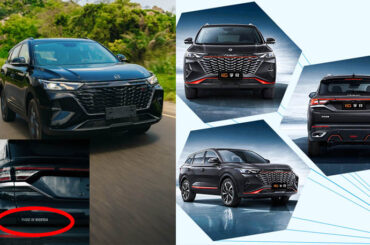Choosing the right vehicle is a big decision that can affect many aspects of your life, like how comfortable and safe you feel on the road daily. With so many cars out there, finding the perfect one for you can be overwhelming. That’s why it’s important to think about many different things before you make your choice.
Table of Contents
In this article, we’ll give you seven tips to help you figure out which car is the best fit for your needs and wants
1. Know Your Needs:
The first step to picking a car is to assess your needs thoroughly. Consider various factors, such as “Do you want a normal car or a luxury car,” passenger capacity, terrain conditions, and specific features you require. Whether it’s ample cargo space for equipment or advanced safety features for long drives, understanding your priorities will streamline the decision-making process. You can focus on vehicles that align with your lifestyle and preferences by outlining your requirements, ensuring a smoother and more efficient shopping experience.
Researching the brand, model, and price range can help narrow your options. While personal preferences may influence your choice, practical considerations such as passenger capacity, driving terrain, fuel economy, and must-have features should precede daily use. Assessing safety features, cargo capacity, and the need for child car seats also play a vital role in selecting the right vehicle for your needs.
2. Set your budget
Establishing a budget is essential when shopping for a vehicle. Determine your affordability for the purchase price and ongoing expenses like insurance, fuel, and maintenance. It’s important to be realistic about your financial situation to avoid overspending and ensure long-term affordability.
Calculate how much you can allocate toward a monthly car payment when considering financing or leasing. The general guideline suggests that your new-car payment should not surpass 15 percent of your monthly take-home pay, and the same rule applies for a used car. For leasing, aim for a monthly payment below 10 percent of your take-home pay. Remember to include around 7 percent of your monthly income to cover fuel and insurance expenses. A clear budget will facilitate negotiations when purchasing your next vehicle.
3. Research Different Models:
Researching your options is essential with countless makes and models on the market. Look into various vehicles that meet your criteria, comparing fuel efficiency, reliability, safety ratings, and available features. Online reviews, consumer reports, and expert opinions can provide valuable insights into the performance and suitability of different vehicles.
4. Decide if you’d buy a new car or a pre-owned one
Once you’ve set your budget and identified the desired model, the next step is deciding between a new or pre-owned vehicle. New cars offer the latest features and warranties but have rapid depreciation, potentially leading to higher upfront costs and monthly payments. Conversely, pre-owned vehicles provide cost savings and a wider selection within your budget, though you’ll need to research their history and potentially budget for maintenance sooner.
Consider factors like warranty coverage, depreciation, upfront costs, and ongoing maintenance expenses to make an informed decision aligned with your priorities and financial situation. By weighing these factors carefully, you can choose the option that best fits your needs and preferences while staying within your budget constraints
5. Evaluate Fuel Efficiency
When choosing a car, it’s smart to consider how much gas it uses. Look for cars that can go far on a gallon of gas (MPG), especially if you drive a lot. Some cars, like hybrids and electric ones, can save even more gas and are better for the environment. You can find out a car’s MPG by checking its ratings online. While these cars might cost more initially, they’ll save you money on gas in the long run. Also, consider how you usually drive, like if you do more city or highway driving. By picking a fuel-efficient car, you can save money on gas and help the environment.
6. Assess the safety features
Safety should be one of your main concerns when picking the right vehicle. You want a car that will keep you and your passengers safe in case of an accident. Look for cars that have advanced safety features like anti-lock brakes, stability control, and airbags. These features can help prevent accidents and protect you if one does happen. Some cars even have systems that can help you avoid collisions altogether. Checking for these safety features can give you peace of mind, knowing that you’re driving a car designed to keep you safe.
7. Cost of maintenance
Maintenance costs are essential when choosing a car, not just the upfront cost. You must also consider how much it will cost to keep the car running smoothly over time. This includes things like repairs, maintenance, and replacing parts when needed. Some cars are more reliable than others, meaning they’re less likely to break down and need expensive repairs.
It’s a good idea to research to find out which cars have the best reputation for reliability. You should also consider the cost of repairs and maintenance for the specific make and model you’re interested in. Some cars have higher repair costs or require specialized parts that can be more expensive to replace.
Conclusion:
Selecting the right vehicle is a significant decision that requires careful consideration of various factors. By following these ten tips, you can confidently navigate the process and choose a vehicle that meets your needs, preferences, and budget. Whether you prioritize safety, fuel efficiency, or comfort, finding the perfect vehicle is within reach with thoughtful research and evaluation.
Have 1 million naira and above to Buy or Sell Cars In Nigeria? Check carlots.ng
All rights reserved. Reproduction, publication, broadcasting, rewriting, or redistribution of this material and other digital content on carmart.ng is strictly prohibited without prior express written permission from Carmart Nigeria - Contact: [email protected]







